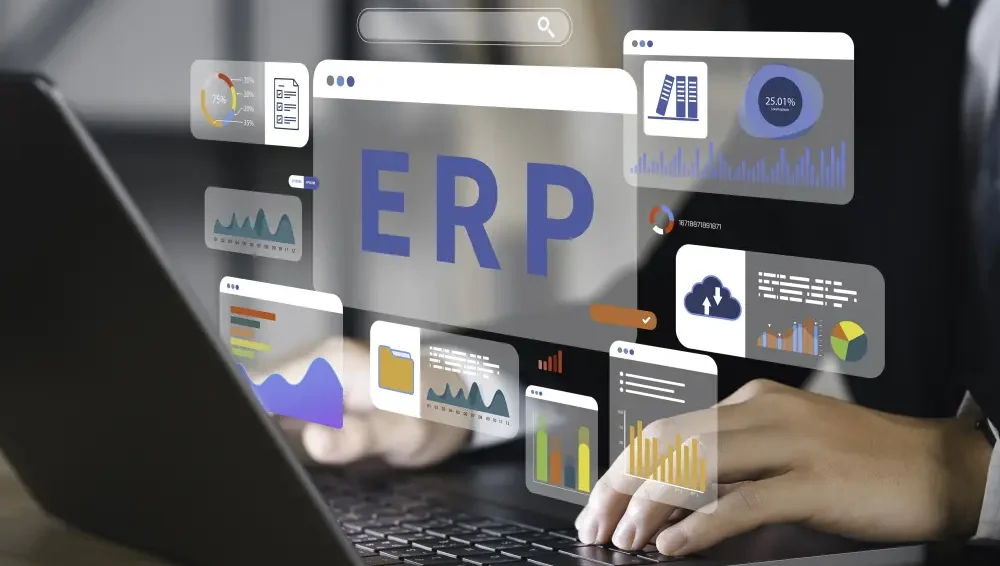Every growing business faces new challenges whether it’s managing more customers, handling larger inventories, or ensuring operational efficiency. An Enterprise Resource Planning (ERP) system, like BizCore ERP, is designed to help businesses scale seamlessly. By integrating all core functions into a single system, ERP provides the tools necessary to manage growth effectively. Here’s how ERP prepares your business for the next level and supports sustainable success.
1. Scalable Infrastructure for Long-Term Growth
As your business grows, so do its operational complexities. ERP systems are built to scale, allowing businesses to easily expand their systems without a complete overhaul.
How ERP supports scalability:
a) Modular design: ERP systems allow businesses to add new modules, functionalities, and users as needed. Whether you’re expanding into new markets or launching new product lines, ERP grows with your business.
b) Increased data capacity: As your business scales, ERP systems are equipped to handle larger datasets and transaction volumes, ensuring you won’t outgrow the system.
c) Adaptable workflows: Customizable workflows enable businesses to modify processes to match evolving needs, ensuring efficient operations as complexity increases.
By providing scalable infrastructure, ERP ensures that your business is ready to handle growth without disruption or additional investment in software.
2. Optimized Resource Management for Greater Efficiency
Growing businesses often struggle to manage resources effectively, from employees to inventory. ERP provides real-time insights into resource availability, allowing businesses to allocate resources more efficiently and avoid bottlenecks.
How ERP optimizes resource management:
a) Real-time inventory tracking: ERP monitors stock levels in real time, ensuring businesses can maintain optimal inventory levels and prevent stockouts or overstocks.
b) Workforce allocation: ERP tracks employee productivity, availability, and project workloads, ensuring that teams are allocated efficiently and no resources are underutilized.
c) Supply chain optimization: ERP provides insights into supply chain performance, enabling businesses to identify inefficiencies, reduce lead times, and improve supplier relationships.
By optimizing resource management, ERP helps businesses operate more efficiently and maximize their growth potential.
3. Enhanced Financial Control for Sustainable Growth
Financial control becomes increasingly important as businesses scale. ERP offers comprehensive financial management tools that provide visibility into cash flow, expenses, and profitability, ensuring businesses can grow sustainably.
How ERP enhances financial control:
a) Integrated accounting: ERP integrates accounting with other business functions, providing real-time financial reports and tracking costs across departments. This ensures accurate forecasting and better decision-making.
b) Automated compliance: ERP systems automatically generate the necessary financial reports to comply with regulatory requirements, reducing the risk of penalties or fines.
c) Cost management: ERP tracks expenses in real time, allowing businesses to identify areas where costs can be reduced or optimized, ensuring that growth remains financially sustainable.
With enhanced financial control, ERP ensures businesses can scale without sacrificing profitability or financial stability.
4. Improved Customer Relationship Management
As businesses grow, managing customer relationships becomes more complex. ERP integrates customer relationship management (CRM) tools, enabling businesses to maintain strong customer relationships even as the customer base expands.
How ERP improves customer management:
a) Centralized customer data: All customer interactions, sales histories, and preferences are stored in one place, allowing businesses to deliver personalized service at scale.
b) Faster response times: With real-time access to customer information, sales and support teams can respond to inquiries and resolve issues more quickly, improving customer satisfaction.
c) Automated marketing: ERP automates marketing campaigns and tracks their effectiveness, ensuring that businesses can nurture customer relationships while focusing on growth.
By enhancing customer relationship management, ERP helps businesses scale without compromising the quality of customer service.
5. Data-Driven Decisions for Strategic Growth
As businesses grow, strategic decision-making becomes more important. ERP provides real-time access to data across all business functions, enabling leaders to make informed decisions that drive growth.
How ERP supports data-driven decision-making:
a) Real-time reporting: ERP generates real-time reports on key performance indicators (KPIs) such as revenue, expenses, inventory, and customer satisfaction, ensuring leaders have the data they need to make informed decisions.
b) Forecasting and analytics: ERP uses historical data to provide accurate forecasts, helping businesses plan for future growth and allocate resources accordingly.
c) Cross-functional insights: With ERP, businesses can see how different areas of the business interact, enabling them to make strategic decisions that optimize overall performance.
With data-driven insights, ERP empowers businesses to grow strategically and achieve long-term success.
Conclusion: Prepare Your Business for Growth with ERP
Scaling a business presents many challenges, from managing increased complexity to ensuring financial stability. Enterprise Resource Planning (ERP) systems like BizCore ERP provide the tools necessary to manage growth effectively. By optimizing resource management, enhancing financial control, improving customer relationships, and enabling data-driven decision-making, ERP helps businesses prepare for the next level of success. If your business is ready for growth, ERP is the key to unlocking its full potential.

